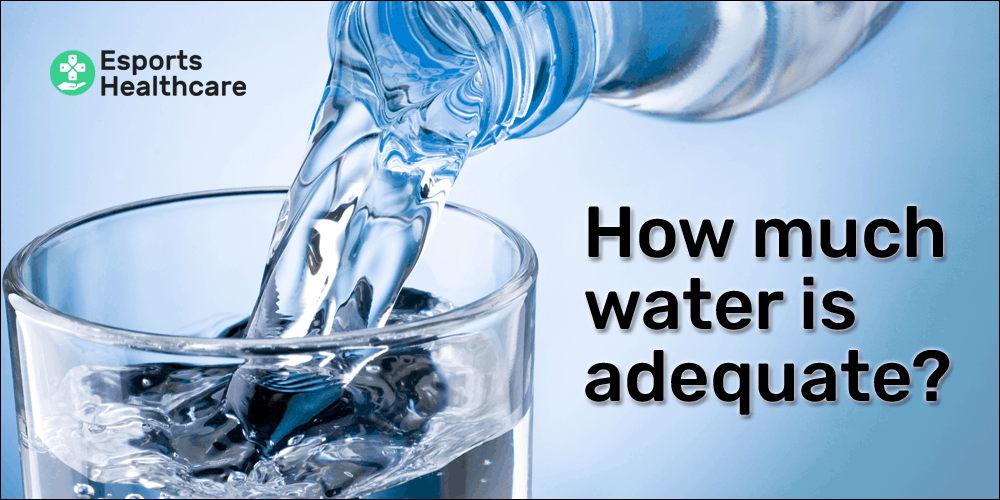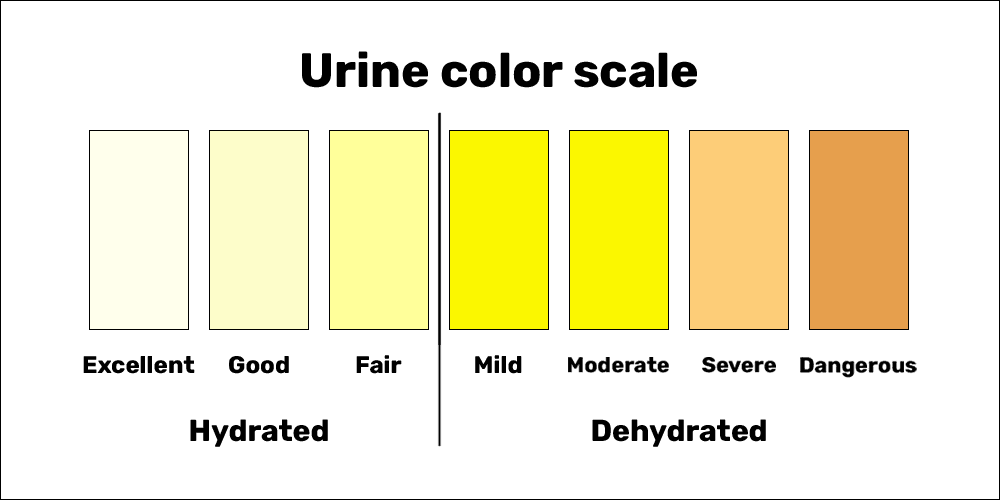How much water is adequate for your health?

Key points
Disclaimer
This information is for educational purposes only and is not intended to replace the advice of your doctor. Esports Healthcare disclaims any liability for the decisions you make based on this information.
The information contained on this website does not establish, nor does it imply, doctor-patient relationship. Esports Healthcare does not offer this information for diagnostic purposes. A diagnosis must not be assumed based on the information provided.
By definition, hydration is the process of causing something to absorb water. In the human body, hydration generally means having the adequate amount of water to perform basic physiologic functions.
Examples of these physiologic functions include, but are not limited to, the formation of blood plasma, detoxification, and heat dissipation. Without water, your body simply could not survive.
On this page, you will learn all about hydration: the minerals involved, the importance of staying hydrated, symptoms of dehydration, and how much water you should drink.
More than just water
When we talk about hydration, we’re usually describing how much water you need to consume on a daily basis; however, in the human body, the absorption of water and its movement between different body tissues and cells are heavily dependent on electrolyte minerals.
The electrolyte minerals which are most important to hydration are sodium, potassium, calcium, and magnesium—often times found in salt compounds (e.g., table salt is sodium-chloride). These minerals are called electrolytes because they carry an electric charge.

These minerals help cells throughout your body to maintain proper hydration through a process called osmosis. Osmosis is when water passes from one cell to another or through an epithelial barrier (e.g., your intestines) due to the difference in concentration.
In other words, osmosis is water being transferred from a less concentrated solution (fewer solvent—in this example, electrolyte minerals) into a more concentrated one (more electrolyte minerals), thereby equalizing the mineral concentrations on each side of the membrane.
To simplify, an insufficiency or deficiency in electrolyte minerals would mean the water in your body would have a more difficult time being absorbed and transported to different cells or body tissues.
Why is water so important?
It may be surprising to learn just how much water exists in all your body tissues. In 1945, an article was published in the Journal of Biological Chemistry, by a scientist named H.H. Mitchell, assessing the chemical composition of the human body. This publication reported that 60-70% of the human body is made up of water.
More specifically, the nervous system (brain, spinal cord, and nerves) and the heart are ~73% water, and the lungs are ~83% water. Skeletal muscle and the kidneys are ~79% water, and skin is ~65% water. Even the bones—seemingly dry body tissues—are composed of >30% water.
Less surprisingly, your blood plasma is >90% water, and the blood is how your body transports oxygen, macronutrients (carbohydrate, protein, and fat), micronutrients (vitamins and minerals), and waste products to and from different cells and other organ systems.
Ultimately, without water, you do not exist!
Lack of water: symptoms of dehydration
If hydration is the process of causing something to absorb water, then dehydration would be the lack of water absorption. Insufficient absorption of water generally means you are not ingesting enough fluid since the large intestine is incredibly efficient at absorbing water.
Now that you know that your body is 60-70% water, it should be easy to recognize that dehydration (lack of water) will disrupt many functions of your body and may present with certain symptoms.

The most obvious symptom of dehydration is excessive thirst. A mild sensation of thirst is not an indication that you are already dehydrated. Rather, it is your body reminding you to drink water in order to prevent dehydration.
Symptoms of dehydration include:
- Infrequent urination
- Dark, discolored urine (see the chart above)
- Decreased sweat
- Muscle cramps or spasm
- Headaches
- Feeling dizzy or lightheaded
- Poor skin turgor: if you lightly pinch your skin, it should be elastic and return to its normal presentation quickly. Dehydration will cause your skin to stay in a pinched or shriveled appearance after being pinched or squeezed.
How much water should you drink?
Rather than strictly reporting how much water you should drink, it is more appropriate to view daily hydration based on overall fluid intake. For example, not all the fluids that enter your body are water. If you drink 8 ounces of coffee, most of those 8 ounces are water, so that counts!
The recommendation for fluid intake is half your body weight (measured in pounds) in fluid ounces, per day. Thus, if you weigh 120 lbs, you should drink 60 fl. oz. If you weigh 160 lbs, you should drink 80 fl. oz, and so on.
Note: fluid intake counts for normal beverages (e.g., water, coffee, tea, juice, and even soft drinks; although, we strongly recommend you do not drink soft drinks). This value DOES NOT include alcoholic beverages! Alcohol inhibits a hormone called anti-diuretic hormone (ADH) and will lead to dehydration.
This recommendation for fluid intake should be enough for most people because you will also obtain water from many of the foods you may eat. Fruits, vegetables, meat products, and fish have plenty of water that is also absorbed.

Additional concern: mineral imbalance
Many people are concerned with how much water they should drink. However, without an appropriate amount of the electrolyte minerals highlighted above, your body will have a more difficult time moving water into cells throughout your body. Perhaps the most obvious presentation of a mineral imbalance is in your nerves and muscles.
Sodium and potassium are necessary for nerve conduction—a mechanism called the sodium-potassium pump which transmits the electrical impulse along a nerve axon. Then, when the nerve impulse reaches a muscle, calcium triggers the muscle contraction, and magnesium plays a role in helping the muscle relax.
These processes are far more intricate than this simple and vague explanation. However, an imbalance of these minerals may affect your muscle contraction. For example, insufficient potassium or magnesium may cause muscle cramps or spasm regardless of how much water you consume.
This is just one example of a mineral imbalance presenting similar to dehydration. Ultimately, hydration and mineral imbalance go together. You should monitor your fluid intake, and you should also monitor your electrolyte mineral intake.
Daily electrolyte recommendations
Below, we have listed the recommendations for electrolyte mineral intake. Please be advised that for the purpose of this post, we only discussed these minerals for their importance in hydration, and each of these minerals has many other important roles in your body.
These recommendations are also based on the adult, general population, and the values may vary depending on circumstances or health conditions.
Please seek advice from your doctor if you have pre-existing health conditions, are pregnant, nursing, or otherwise curious about dietary intake.
| Mineral | Daily intake |
Food sources |
| Sodium | 1.2-1.5 g | Meat, dairy, frozen foods, canned foods, salted nuts, salted pretzels |
| Potassium | ~4.7 g | Banana, orange, grapefruit, pineapple, apple, tomato, apricot, avocado, squash, beans, fish, meat |
| Calcium | ~1,000 mg | Dairy, salmon, sardines, kale, broccoli, collards, turnip, tofu, bok choy |
| Magnesium | 310-420 mg | Nuts, whole grains, legumes, leafy greens, dairy, meat, fish |
Note: of these four minerals, sodium is the least likely to have an insufficiency or deficiency. Many foods we consume are rich in sodium, and often times we add salt (table salt is sodium-chloride) to foods we cook or consume.
